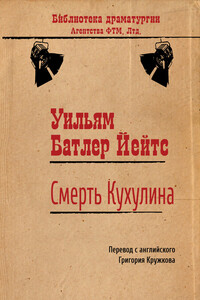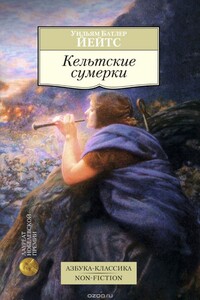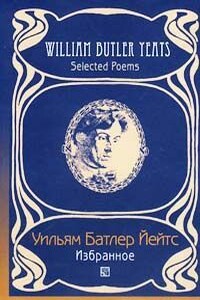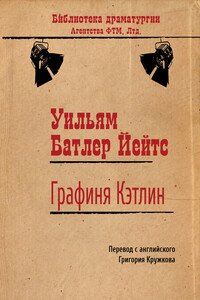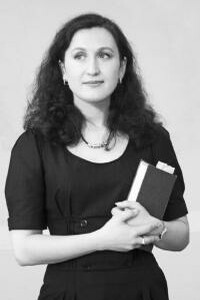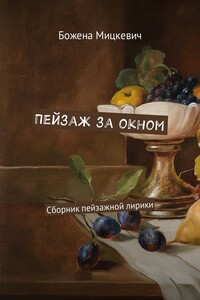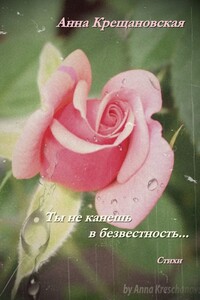«…вечным Огмия письмом»: имеется в виду огам, древнеирландский алфавит, по преданию, изобретенный богом мудрости Огмой (Огмием).
«…из рода Рури»: «Потомками Рури (Рудрайге)» именуются все уладские герои, кроме Кухулина. В поздних генеалогиях их род возводился через Рудрайге к Иру, сыну Миля, – одному из первых людей, прибывших на землю Ирландии.
«В иных полях…» («…on the Great Plain» – на «Великой Равнине»): d комментариях к поэме Йейтс отмечает: «“Великая Равнина” – это Страна умерших и блаженных; ее называют также “Страной живого сердца” и еще многими другими прекрасными именами».
«…и Троном Лейгина зовет»: Лейгин, или Лаген (Leighin, Laighen, гаэл. Laighin) – другое название Лейнстера. Трон Лейгина, или Холм Айлин (Dun Ailinne) – холм в графстве Килдар, на котором находилась одна из крепостей, принадлежавших королям Лейнстера.
Мидир – в ирландской мифологии король сидов. Когда он привел в дом вторую жену, Этайн, первая его супруга, ревнивая колдунья Фуамнах, превратила соперницу в пурпурную муху. Ветер подхватил Этайн и перенес в жилище Энгуса, бога любви. В комментариях к поэме Йейтс поясняет, что Этайн «некогда нашла убежище в стеклянном дворце Энгуса, и мне представилось, как она там сплетала из волос Энгуса струны для арфы».
«И город башен Гориас, / И Финдриас, и Фалиас, / И даже древний Муриас/ … Котел, меч, камень и копье»: В ирландской мифологии это четыре таинственных северных города, из которых пришли в Ирландию Племена богини Дану. В комментариях к поэме Йейтс называет их «городами знаний, недоступных смертному взору, где они [т.е. Племена богини] обрели четыре талисмана: копье, камень, котел и меч».
«Птицы Энгуса…» – в ирландской мифологии поцелуи Энгуса превращаются в птиц.
«…Бой у брода…» – бой между Кухулином и его лучшим другом Фер Диадом, окончившийся гибелью последнего. Описан в саге о похищении Быка из Куальнге.
(с) Анна Блейз
ARGUMENT. Baile and Aillinn were lovers, but Aengus, the Master of Love, wishing them to he happy in his own land among the dead, told to each a story of the other's death, so that their hearts were broken and they died.
I hardly hear the curlew cry,
Nor the grey rush when the wind is high,
Before my thoughts begin to run
On the heir of Uladh, Buan's son,
Baile, who had the honey mouth;
And that mild woman of the south,
Aillinn, who was King Lugaidh's heir.
Their love was never drowned in care
Of this or that thing, nor grew cold
Because their bodies had grown old.
Being forbid to marry on earth,
They blossomed to immortal mirth.
About the time when Christ was born,
When the long wars for the White Horn
And the Brown Bull had not yet come,
Young Baile Honey Mouth, whom some
Called rather Baile Little-Land,
Rode out of Emain with a band
Of harpers and young men; and they
Imagined, as they struck the way
To many-pastured Muirthemne,
That all things fell out happily,
And there, for all that fools had said,
Baile and Aillinn would be wed.
They found an old man running there:
He had ragged long grass-coloured hair;
He had knees that stuck out of his hose;
He had puddle-water in his shoes;
He had half a cloak to keep him dry,
Although he had a squirrel's eye.
O wandering birds and rushy beds,
You put such folly in our heads
With all this crying in the wind,
No common love is to our mind,
And our poor Kate or Nan is less
Than any whose unhappiness
Awoke the harp-strings long ago.
Yet they that know all things but know
That all this life can give us is
A child's laughter, a woman's kiss.
Who was it put so great a scorn
In the grey reeds that night and morn
Are trodden and broken hy the herds,
And in the light bodies of birds
The north wind tumbles to and fro
And pinches among hail and snow?
That runner said: "I am from the south;
I run to Baile Honey-Mouth,
To tell him how the girl Aillinn
Rode from the country of her kin,
And old and young men rode with her:
For all that country had been astir
If anybody half as fair
Had chosen a husband anywhere
But where it could see her every day.
When they had ridden a little way
An old man caught the horse's head
